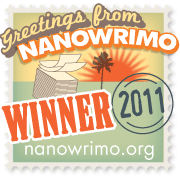I am in the midst of copyediting and critiquing a memoir about a middle-aged man who decided to move in with his twenty-seven-year-old son. This author has a background in education and writes a fantastic observational tale of the ordeal of moving from his large, sprawling house in Georgia to his son’s two-bedroom ranch home in New England. He has a strong command of vocabulary, and he is careful to keep his narrative objective as he describes the setting, his new job, his son’s friends.
Despite the interesting factual plot, I have been feeling like something deeper is missing from his narrative. About twenty pages in, I realized what it was. I’m having trouble connecting to the narrator. I don’t know who this man is, or why I should care about his mid-life crisis at all.
The author is our hero in this memoir. The role of the hero is such that the reader is privy to all his thoughts, ideas, dreams. This helps us to relate to the hero much quicker, more easily.
What do we, as the reader, anticipate when a hero invites us to tag alongside him in his crisis? Don’t we want to see him clearly? Hear his rants? Feel his pain or sorrow? Commiserate with his loneliness, financial burdens, bad luck? Understand his motivations? Root him on to his dreams and goals?
When I bring up comments about the lack of inner story throughout the manuscript, the author gets squeamish. He admittedly is resistant to digging down deep and giving more of his outlook on life, or even, his reasons for moving in with his son and writing about it. He is a teacher first and foremost, and for him to write about himself in his narrative is like visiting a foreign country unable to speak the language.
Maybe I’m barking up the wrong tree, but I’m afraid that without incorporating himself he is missing a beautiful chance to write a book that will stand out from the stacks. When I read a book, I want to connect with the POV character, and in non-fiction such as his the POV character is the author. I want not only to walk alongside the author as he goes on his daily jaunts, pointing out the various sights of interest, but I want to know what pulls this author forward. I want to know why he’s bothering to share his experience with me, and why should I care?
Outer story might motivate a reader to pick up a book. Inner story is what connects readers to the story and makes them care about what happens from beginning to end. If I want to read his book, it isn’t only because I want to read about a father and son trying to reconnect. It is because I want to read a story that makes a difference to my life in one way or another.



